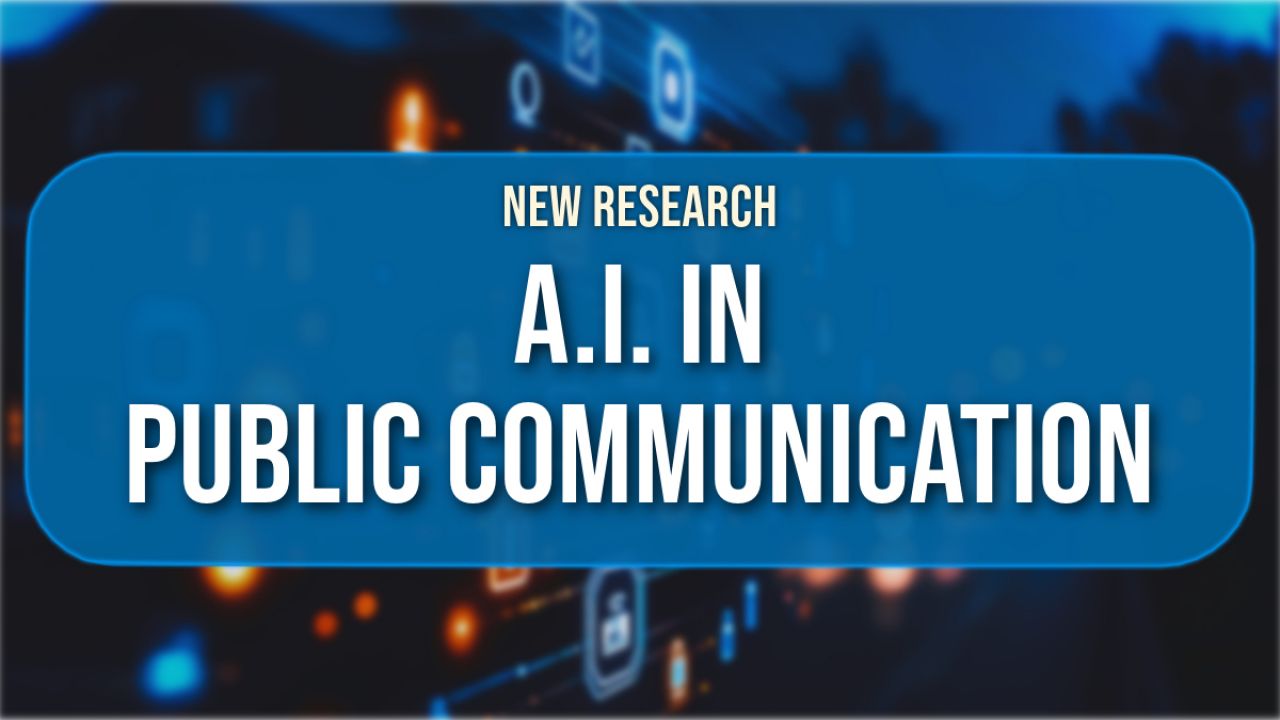May 06, 2025
What AI means for organizations, professionals and the public

Artificial intelligence (AI) is rapidly changing how businesses operate, especially in fields like advertising, public relations, and marketing. But how are these changes impacting the people who work in these industries?
We conducted four interviews and a survey of 187 professionals in the United States to get a sense of how AI is being used and what people think about it.
Here’s a breakdown of our key findings:
-
(As you know) AI is already here. AI is being used for tasks such as data collection, content creation, and targeting consumers.
-
There are real concerns. Employees worry about a lack of transparency in AI, which can lead to misclassifications and misinformation. They also feel that AI can reduce human creativity, displace jobs, and amplify biases in media. There is also a worry about how stakeholders, such as clients and the public, will respond to their AI use.
-
People want to learn more. Employees are more likely to seek out AI training when they believe the AI is authentic, when they have a good understanding of AI, when they feel pressure from their organization to use AI, and when they have ethical concerns. Interestingly, when employees have a strong sense of autonomy provided to the audiences, they are likely to seek out training
-
Government intervention is supported. People who have strong ethical concerns about AI, or who feel that there is social pressure to adopt AI, are more likely to support government regulations. The perceived need for social approval (“How much do communicators need permission to use AI?”) is the strongest driver for supporting government intervention.
-
Organizational investment is affected by several factors. Support for investing in AI is linked to the perceived authenticity (of AI-applied campaigns) and performance of AI, as well as pressure from the organization to use it. However, a high need for social approval can decrease support for organizational investment.
What does this mean for organizations?
The study highlights some important points for businesses using AI and for people working with it:
-
Education is key. Organizations need to provide comprehensive training to employees about AI and its ethical implications. When they understand the technology better and see that it’s being used ethically, they are more likely to engage with it and seek out training.
-
Clear guidelines are crucial. Companies and policymakers should establish clear rules for AI use that address bias, accountability, and public safety. These transparent policies can help to build trust in the public and reduce employee concerns.
-
Communication matters. Organizations need to explain how AI improves operations and protects the autonomy of their stakeholders. Emphasizing shared responsibility, and not only individual responsibility, is important.
-
Prove the value of AI. Businesses need to demonstrate that AI is effective to gain the trust of their employees and justify investment.
Our study suggests that while AI holds a lot of promise, its ethical implementation is crucial. This will not only help the communication industry adapt AI technology successfully but also build trust with the public.
For more information about this study, email Won-Ki Moon at wonkimoon@ufl.edu. This project was supported by a 2023 Page/Johnson Legacy Scholar Grant from the Arthur W. Page Center.
